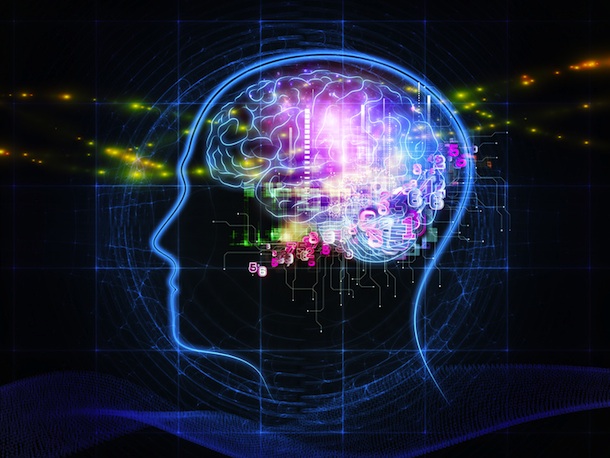BOSTON, U.S.A. The mind—we always hear—peaks initially, and then deteriorates as we grow older. However, this apocalyptic view of human aging is not necessarily the only view. Marlene Oscar Berman, Ph.D, and Director of the Boston University Laboratory of Neuropsychology explains the basics of the aging process, the various factors involved and the positives of growing older.
Dr. Berman is a professor at the Boston University School of Medicine, where she is a Professor of Anatomy & Neurobiology, Professor of Psychiatry, and Professor of Neurology. She has received various grants and awards over the past decades regarding her research and work. She has been recognized multiple times by the United States Department of Health and Human Services, which has awarded her three grants over the years. In 1995, the U.S. National Institute on Alcohol Abuse and Alcoholism gave her the MERIT Award. Berman is also a Research Career Scientist with the Department of Veterans Affairs Medical Center (VA), and has been published over 150 times.
Of the two types of intelligence associated with the brain, fluid and crystalized, what happens to both over time?
Dr. Marlene Oscar Berman: Crystallized intelligence is indicated by a person’s depth and breadth of general knowledge, vocabulary, and the ability to reason using words and numbers. It is the product of educational and cultural experience in interaction with fluid intelligence. Crystalized intelligence improves somewhat with age, as experiences tend to expand one’s knowledge.
Fluid intelligence involves being able to think and reason abstractly and solve problems. This ability is considered independent of learning, experience, and education. It tends to decrease with age.
What our minds’ optimal years?
It depends upon what you need your mind to do. If you have to learn new motor skills (e.g., skiing, piano playing, football, knitting, etc.), younger usually is better. If you have to give advice on complex problems (e.g., taxes, parenting, cultural differences, etc.), older usually is better.
Some theorists argue that our brains begin to decline after age 25. This seems very young. Can you shed some light on this theory?
I think this notion is based upon neuroanatomical measures of brain development. The number of certain types of cells in parts of the brain increases into one’s 20s, but in other regions this stops much earlier. Brain cell loss occurs throughout adulthood, more so after age 50. Remember also that as we age, especially after 50, we are more prone to illnesses and other health problems, and these problems can affect brain functioning (e.g., liver disease, cancer, HIV, Alzheimer’s disease, etc.). Additionally, we have to consider gender differences in brain structure, which are quite real.
Do gender differences in brain structure increase as we grow older?
In general, the size of the brain decreases as we age, and there are gender differences in the sizes and functions of different regions of the brain. One example is that the speech area in the left hemisphere tends to be larger in women than in men.
Some research has shown that the brains of men and women show different patterns of volume reduction as they age, but the studies differ with respect to the specific brain areas where these differences occur. One study showed that there was a significant negative correlation between gray matter concentration (i.e., size of the cerebral cortex) and age in each gender group, and the differences were more prominent in the older age groups compared with the younger age groups. In that study, gray matter concentrations in the frontal lobes, anterior cingulate gyrus, medial thalamus, and hypothalamus were retained more in women as they aged, whereas those in the occipital regions were retained more in aging men. Other studies show different patterns of results.
Keep in mind that reduction in brain volume with aging doesn’t necessarily impact information processing or other cognitive and emotional functions, because there is redundancy in how the brain can function.
A recent research article discusses a new way to study the aging mind. Essentially, it says that older individuals aren’t slower thinkers or cognitive processors. In fact, they just have more information to sift through, so this makes them seem slower. Could you share what you think about the new theory mentioned in the article?
Information processing involves attention to, and perception of, incoming stimuli by our senses, remembering some of it, and having it available for later use if necessary. We attend to, perceive, and remember more and more information as we age, and we can develop efficient ways to do this. But our motor reflexes may slow as we age, so our responses to incoming information might be slower. If you add slower responses to an increasing amount of accumulated information, it might seem like older people have “deficits” in cognition. However, if you mathematically factor out the influence of a larger amount of accumulated information, the end result appears to level the playing field.
I don’t know if the article factored in slower reflexes, but the same reasoning can be applied there. In any case, I agree with the study that was discussed in the NY Times. However, I don’t see it as a new idea. Rather, I see it as a new way of analyzing an old idea.
Resilience studies are part of the strengths-based approach, a research method that looks at the positives of aging. These studies highlight the importance of community relations in aging. How important are social networks to aging individuals?
Research suggests that social networks are important for health, and this is especially true as one’s physical skills decline. Here’s a summary of one big study: “… social engagement was associated with self-reported health and objective health status in a life span sample of adults who ranged from 20 to more than 90 years of age. Our findings, among others, confirm the importance of social engagement as an important component of physical health in later life.”
What can younger generations do to promote their cognitive abilities? Will ballroom dancing help us too?
I think that the acquisition of most new skills will be helpful. Exercise is very important, and dancing is one form of exercise. A healthy diet is important, as is the avoidance of harmful drugs. Regular physical check-ups also are important to keep healthy, which of course would have an effect on cognitive abilities.


